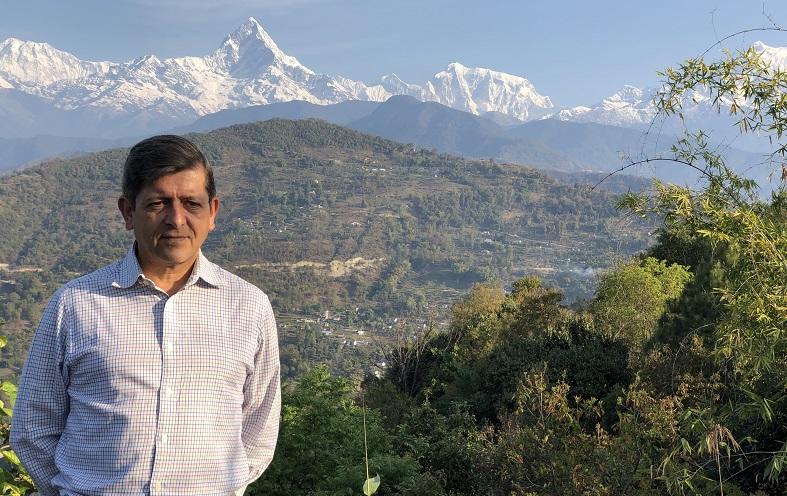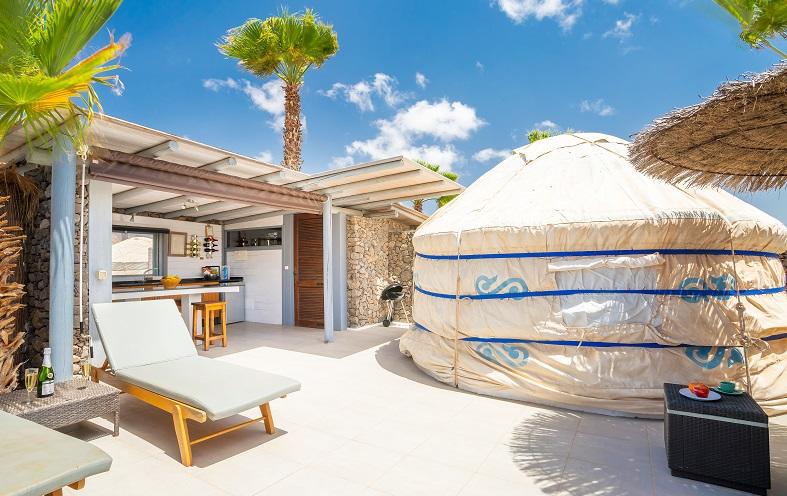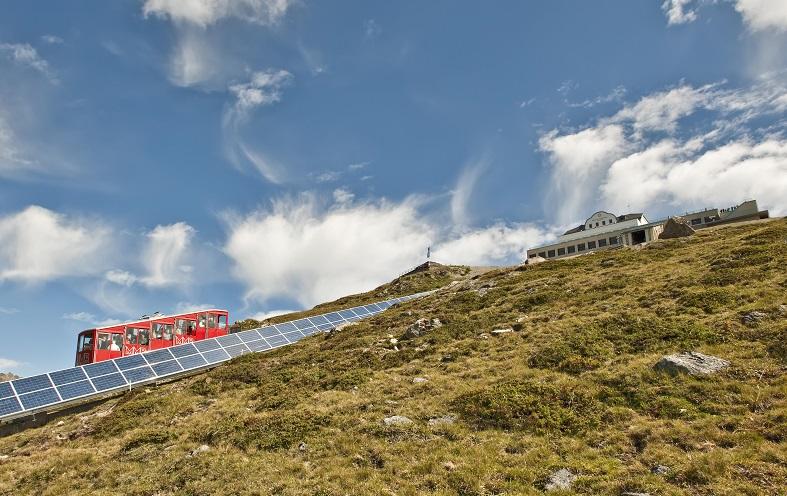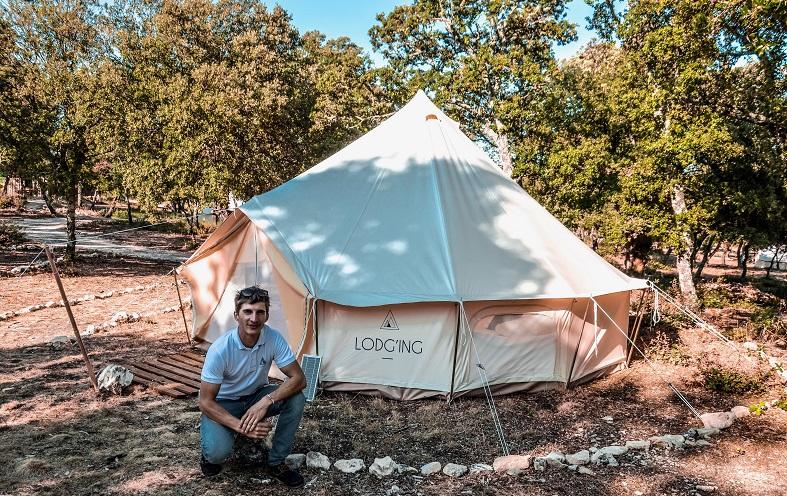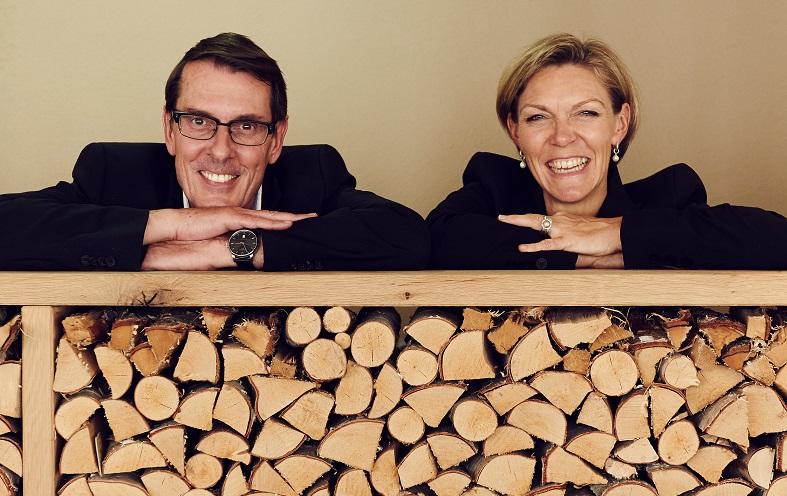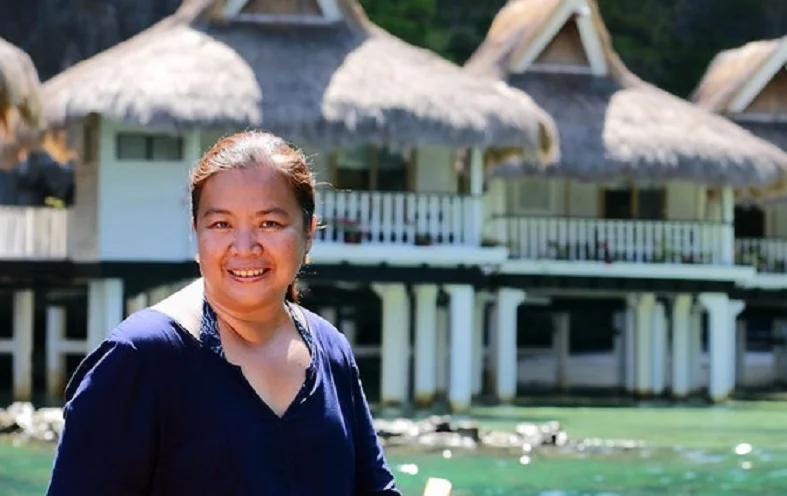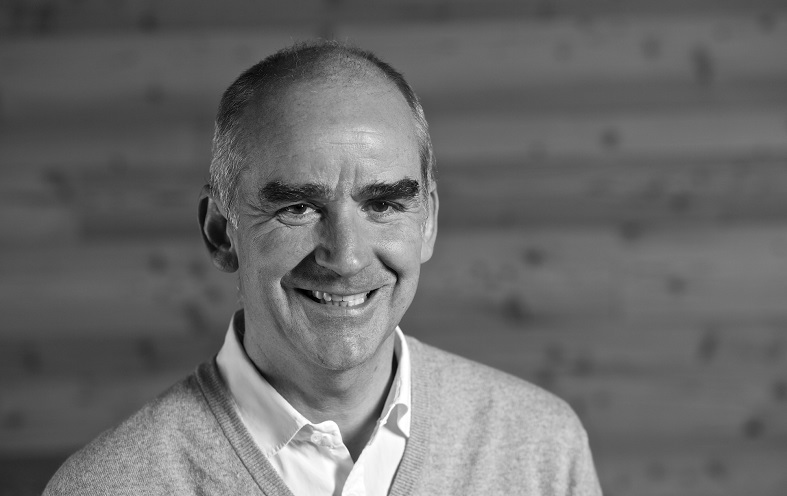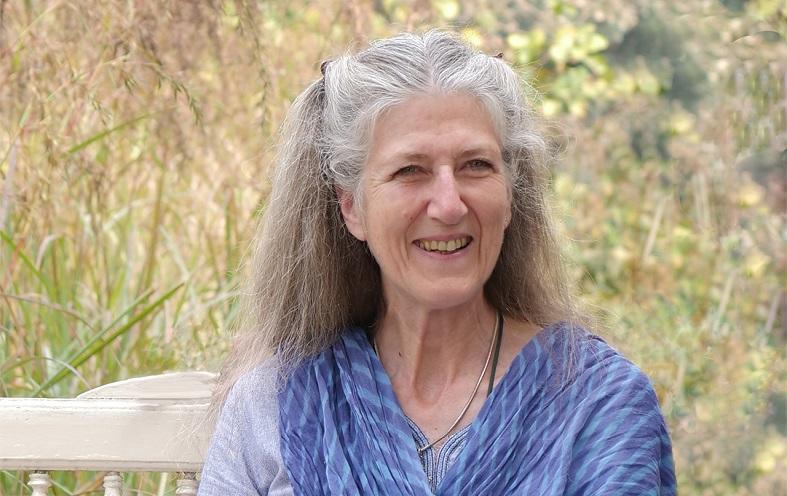
How to combine wildlife conservation and community development with responsible travel and regenerative tourism?
Joanna Van Gruisen of the Sarai at Toria in the heart of Central India in this interview reflects on the journey of building their eco-lodge in a way to keep its carbon footprint as low as possible, and how they have been developing the property with respect for local culture and aesthetics. Joanna further discusses the challenges involved in running a business sustainably, how the COVID-19 pandemic has impacted the business, and how her views on tourism and sustainability have changed over the years.
While the Sarai at Toria is providing employment opportunities in a mostly agrarian community, she outlines their aspiration to take tourism beyond this by developing a model where biodiversity conservation is expanded and the community is the primary beneficiary.
Joanna, with Sarai at Toria you have, together with your husband, created a unique eco-lodge in India which has received impressive reviews on Tripadvisor. What motivated you and Raghu to start an ecotourism business in this area?
That has a bit of history and is rather a long story! I will try to be brief. Neither Raghu nor I come from a tourism background, nor indeed had we any experience in running a business: I came to India initially (from the UK, via Nepal and Sri Lanka) to shoot wildlife documentaries (later morphing into still photographer and writer on wildlife and conservation) and Raghu is a scientist, a conservation biologist.
Our connection with this area arose through his ten-year study on the ecology of tigers in the Panna Tiger Reserve. We had had to leave the area in 2005 when we spoke out about the poaching that, unattended, led to the extinction of tigers there a few years later. We had always intended that the research project would continue long-term and have a conservation component based on the scientific information of the study.
Once some of the dust had settled, although there was no possibility for Raghu to undertake research within a Protected Area, we wanted to extend conservation in the region to areas beyond the park boundaries. We believed this could be best done while bringing appropriate development to some of the remote communities of the region. We felt that being dependent on grants for such work would create an unstable existence, so we decided to open a small tourist lodge in the hope that this would give us an economic base from which to work.
We also felt that a positive synergy could operate between the tourist concern and the conservation and development activities we hoped to pursue. The iconic thousand-year-old temples of Khajuraho, recognised as a UNESCO World Heritage site, are close by and as there was a lack of culturally appropriate accommodation in the area for visitors, we felt there was a niche for us.
How do you approach sustainability at the Sarai at Toria?
We both come from wildlife conservation backgrounds and are aware of climate change and the adverse impact of human activity on the planet. Our bottom line and foundation for the Sarai were to keep our carbon footprint as low as possible; we wanted to create accommodation that was as earth-friendly as possible, in build and running. We, therefore, looked to the vernacular architecture of the region and quickly settled on mud as our main building material, since this was clearly the best medium for handling the extremes of hot and cold that this area enjoys — from 45°- 50°C in summer to 3°- 4°C in winter — without us having to resort to energy-hungry cooling and heating appliances.
The aim was to provide a healthy built-up environment in which our guests could discover that comfort and elegance (‘luxury’) could be achieved without it costing the earth (environmentally). We also had in mind that doing so could raise the status for mud in the local community and so hopefully lessen the effects of the disdain which is generally meted out to those still living in traditional dwellings.
I guess our approach to sustainability was from a personal level, an extension of the way we lived. We aimed to keep things simple and avoid excess and unnecessary waste. So, for example, since we never used bottled water ourselves, we saw no reason why our guests would need it! More seasoned tourism professionals threw up their hands in horror telling us this would never work for a hotel; but we put our water filter where it would be visible and in ten years, we have never provided a single plastic bottle of water and only ever had one party who complained.
In such a rural area, one has to be self-sufficient in many spheres that others may take for granted—since where we are there is no electricity, no running water, no sewerage lines, no rubbish collection. Perfect situation to encourage sustainability! Besides we are in such beautiful countryside and on the banks of one of the cleanest rivers of India, so I think one would need to be very callous or totally blind to its merit if one did not take care to preserve and not destroy this.
We began 100% solar with a 10kW power plant – this made us very conscious of the wattage of lights and appliances, searching out the most efficient and low energy ones. We naturally avoided single-use plastics and as far as possible use natural items in our furniture, furnishings, consumables and cleaning items. Knowing about the benefits of effective microorganisms means we do not have to worry about adding toxic chemicals to the land or waterways.
I guess overall our approach was to find a way others could share our enjoyment and appreciation of all the natural, cultural and social wonders of the area without this spoiling any of them.
Social sustainability being one of the keys to achieving sustainable tourism: how do you involve the local community at the Sarai at Toria?
The local community are the Sarai really, it is their warmth and natural hospitality that makes the experience what it is. All our staff hail from the villages around the Sarai at Toria—all that is except one cook who had already been working with Raghu for over fifteen years when we began the hotel. Several came as labourers to build the cottages and stayed on, training with us in housekeeping, F&B, etc. Our driver, boatman, guides and naturalist who accompany our guests on safaris, walks, excursions, etc. are all from the neighbouring villages. Our guests get authentic and expert local information and this provides a social as well as physical sense to the visitors’ experience.
Of course, we showcase and encourage our guests to appreciate pottery and other local crafts and this helps provide revenue to the artists. As far as possible, we buy locally and use local amenities so the tourism income and benefit is spread as widely as possible.
The current coronavirus pandemic has hit the travel industry hard this year. How does it affect your business?
Yes, indeed and for us personally we are yet to experience the worst of it. The Sarai at Toria runs seasonally, usually from 1st October to 15th April. This is due to the fact that after mid-April the weather is just too hot to enjoy all the outdoor activities, and in the monsoon, we are often cut off by a swollen river.
So until now, October, we have in effect only lost one month’s business and most of our guests and travel agents who had to cancel have been good enough to postpone and leave their credit with us. We had just completed ten years of operation so loans were mainly paid and we had been able to build up a small corpus fund. So all this combined has enabled us to retain all staff which is our main priority. The bite may happen now; I fear this season will see very low occupancy, especially as in earlier years around 75% of our guests were international travellers. We are yet to see how much movement there will be at the domestic level.
However, we also hope that life becomes more normalised so that we can again take up our NGO activities in the region. If this happens it may be possible to divert some of the hotel staff to work there and thereby share salary expenses. Several aspects of the way we operate are advantageous: growing some of our own fruit and vegetables has helped, especially during the initial strict lockdown; staff being able to go home easily (and return), sourcing consumables locally, not being dependant on distant items etc.
Which aspects of running the business sustainably do you find the most challenging? And how do you overcome those challenges?
One of our biggest challenges has been in trying to take the tourists and industry along with us. In the early years especially, it was only a small handful of tour operators who understood what we were doing. Others would just look at aspects like no air conditioners and no swimming pool and take their bookings elsewhere. This is still an issue but is improving as attitudes change and both the clients and the operators become more conscious. I think the buzz of sustainability in the industry throughout this lockdown period could prove very beneficial for a new travel ethos.
When we started, we had hoped that the Sarai might serve as a stepping stone for our employees to move up in the industry career ladder. But in fact, most of our staff have remained with us throughout. We had sponsored several local youths to go on hospitality training courses which guaranteed a job at the end of this. However, all have since returned to their home areas.
Sadly there are still many prejudices across India and being an outsider in a different part of the country is not easy especially for someone from a rural village with little outside exposure. Their experience was discouraging to others.
As I mentioned earlier, we operate seasonally and are only open for six and a half months of the year. One could have extended this into the summer season by installing air conditioners and swimming pools and other indoor activities but this was not the kind of tourism we were looking to encourage, since it is not really appropriate for these agricultural community areas. But financially this restricted season can be challenging.
Balancing our footprint with benefit in our local area is relatively simple as we can see the advantage tourism can bring for communities in remote rural areas and for the wildlife there. In India wildlife tourism has tended to get a bad press with accusations of resort owners making big profits and providing no benefit to the areas in which they are situated.
Through our trust, Baavan, we did a study with TOFTigers to look at the finances of tourism around 4 tiger reserves in our State of Madhya Pradesh. Even we were surprised at how much is fed into the local community. We also found that 85% of visitors are budget travellers and average occupancy overall is only around 30%, resulting in lodges not being hugely profit-making enterprises. Even though tourism has developed without plan or intention, it still contributes quite considerably to social development and to conservation in the immediate environment where it is situated.
However, the majority of Sarai’s guests come from overseas, so we also felt the need to consider the carbon footprint of their long-distance travel. Being wildlifers, running a responsible tourism concern is necessary but does not seem sufficient. We like to look beyond and are hoping to use the Sarai as a stepping stone to creating an opportunity for a true Conservation Tourism enterprise.
Through our trust, we have set out on a path and are working in some villages beyond the park and buffer area. Our objective is to use tourism as a tool for creating a new area of biodiversity conservation, one where the local community are the main stakeholders and beneficiaries.
At present, India has only a handful of parks where there is a good chance to see a tiger. Entry is limited and demand exceeds the supply. Also, the focus is mainly on the charismatic carnivore species and in most places, only one mode of entry—by jeep—is permitted. Developing areas outside the park system would allow a more varied and enriched visitor experience too.
With 10 years of experience with the Sarai, how has your understanding of sustainability changed since you first got involved?
When we first started, our idea was to contribute as little as possible to the warming of, and damage to, the planet while running our operation. But a few years ago, we realised that this is not enough, we needed to become more proactive and actually be part of an attempt to reverse the damage. This was when we first came across, and began to use, the term regenerative.
Our aim is always to try to spread our views to our guests and also to the tourism industry as far as we react with it. This is where our small trust Baavan comes into play and we are taking small steps to spread conservation beyond India’s Government Protected Areas and aiming to complement their exclusive model with an inclusive one that will benefit the local human population along with increasing the area’s biodiversity.
We see tourism as a potential driving force for this. Broadening support for conservation tourism, we have also been able to successfully encourage urban-based local agents to materially support such endeavours.
This COVID period has given all of us time to reflect and discuss ways to move forward with greater purpose. Several of us responsible tourism lodge owners are now coming together to pool resources and create an independent enterprise that can take up key conservation projects. We hope to also attract all other wings of the tourism industry— the tour operators in India and abroad and the travellers. We want to bring everyone together on the premise that ‘alone we are a drop but together we can make an ocean’!
Your three bits of advice for accommodation owners or managers on how to care for the local community and wildlife, and at the same time ensure their own economic sustainability?
Use common sense, science (that is, facts) and empathy. Rather a general comment but I think it is important to understand that each situation is unique. What may be advisable or beneficial in one area may be quite the reverse in another.
To me “care for” has a bit of a parent-child connotation, so I would rather say we need to respect the local community and wildlife—it is not so much that we need “to care for” the local community nor the wildlife, but we do need to treat both respectfully. Respect allows there to be an equitable and positive relationship between all parties. Similarly, it is not an individual’s job to “care for” the planet but it is our duty to respect all in it and to always interact with thoughtfulness and consideration. Indeed, the planet cares for us way more than we do it!
Balance is key, as in so many things. Too many tourists and the destination and community can be spoilt. The landscape, local community and visitor need to co-exist in equilibrium so the first is sustained and the other two may benefit from their interaction with each other.
If you had to pick one – which would you name as your most rewarding experience so far, linked to your work at The Sarai?
It is rewarding when guests understand and appreciate what we are doing; this is especially so when those I might refer to as the ‘marble bathroom, aircon, 5-star’ tourists arrive with some trepidation but leave happy and with some appreciation that such items are not essential to a luxurious stay.
Also seeing the joy on the village school children’s faces and hearing their enthusiasm for the natural world during the nature camps we organise locally, gives reward and hope for the future.
Anything else you’d like to mention?
In India we are part of a dynamic marketing cooperation of like-minded hotels—RARE India, started by Shoba Mohan. This has been invaluable as a mechanism and forum for sharing ideas and receiving inspiration and education. The Sustainability Leaders United would appear to offer the same on a much broader scale. It is thrilling to read of so much happening all over the world, and to feel part of a bigger movement is hugely stimulating and cheering. I’m really happy and honoured to be part of such an energetic, positive and forward-thinking community.
Thank you, Joanna!
Connect with Joanna Van Gruisen on LinkedIn. Check out (and if you like, plan your visit of) the Sarai at Toria HERE.
Enjoyed our interview with Joanna Van Gruisen on how to combine wildlife conservation and community development with responsible travel and regenerative tourism? Thanks for sharing!

